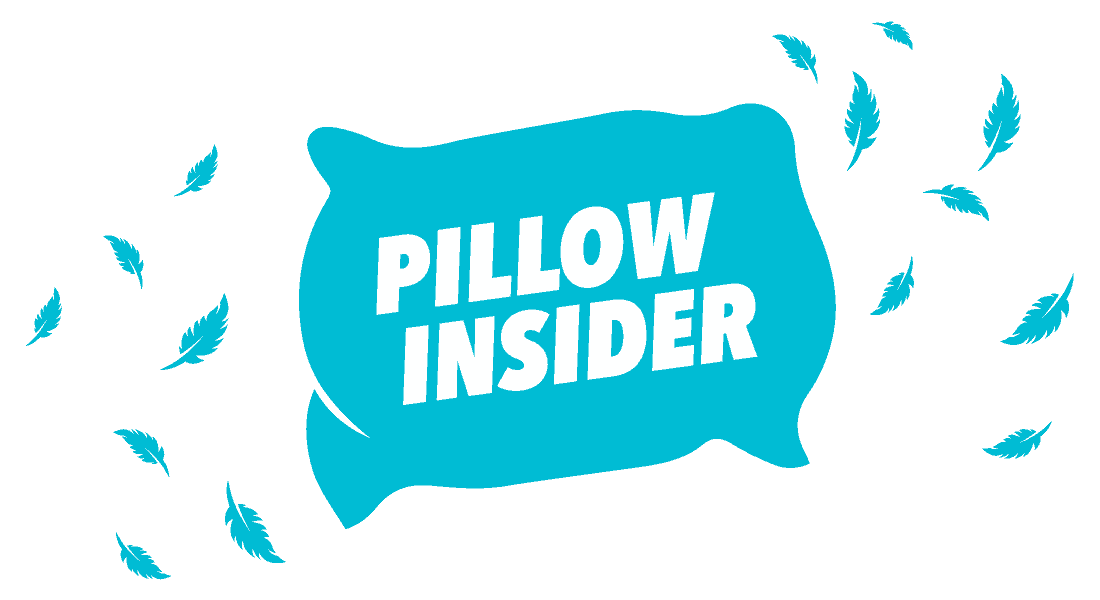Acute shoulder pain can make it impossible to enjoy a peaceful night’s sleep. The cycle of discomfort may cause you to toss and turn all night long and may end up putting extra strain on the shoulder muscles. This results in further soreness, cramping, and stiffness. If proper precaution is not taken, added pressure to the muscle and rotator cuff may result in tearing, therefore proper care is essential.
How to Sleep with Shoulder Pain
There can be several triggers for severe shoulder pain, but there are a number of effective home remedies. Sleeping with shoulder pain can be made easy by using special pain relief pillows, practicing deep breathing and daily shoulder exercises, and even using over-the-counter pain medication.
1. Use specialty pillow for shoulder pain relief
While changing your sleeping position may decrease the pressure off your aching shoulder, a more effective option is using a specialty pillow for shoulder pain relief. Depending on your preferred sleeping position, you may find the right pillow that will keep you from getting into an uncomfortable position that could aggravate your shoulder pain at night.
Side sleepers
The MedCline Shoulder Relief Wedge is specialized pillow for side sleepers who suffer from acute shoulder pain. Available in single size for all, this specialty pillow can fit right or left side sleepers and helps to evenly distribute weight instead of your body straining down on your affected shoulder.
The MedCline pillow props your body up to a 6-inch height to ease the pressure off the arm and shoulder resting below. The intricately designed patented arm pocket enables the sleeper to switch to any side, with your arm comfortably positioned without any pressure on the shoulder. The pillow comes with adjustable stuffing so you can add or remove the filling to your personal preference. Its flexible design is immensely helpful for rotator cuff injuries, bursitis, chronic shoulder pain, neck pain, and even calcific tendinitis.
Back and stomach sleepers
If you are a back or stomach sleeper and suffer from excruciating shoulder ache, you may want to use the EPABO Contour Memory Foam Pillow. This specially designed orthopedic sleeping pillow provides therapeutic pain relief for stomach or back sleepers so you can wake up feeling refreshed and pain-free.
The standout feature of the EPABO Memory Foam Pillow is its ergonomic design that offers a contoured design for the neck, head, and shoulders. This supports the natural curvature of the neck, eliminating back pain and providing relief for aggravated shoulder ache. While it may take some time to get used to, the pillow can firmly support your body and keep it from straining your shoulders. We have got this handy article that explains how to use a contour pillow the right way.
Constructed with breathable memory foam that provides impeccable airflow, keeping you cool and dry, this pillow also has hypoallergenic features. The rayon and polyester proprietary blend pillowcase is silky smooth and defends against dust mites, mold, and other allergens.
2. Don’t sleep on the affected shoulder
It goes without saying that in case of sharp shoulder ache, you should always avoid sleeping on that affected shoulder. This is because when you sleep on your affected side, you put your entire body weight on your shoulder and this adds serious strain to the muscle which may begin to ache and even result in neck pain.
Studies have shown that people seeking remedies for shoulder problems noticed that there was a clear link between the sleeping position and the bursting pain in their shoulders. Approximately 67% of the participants revealed that they slept on the side where they felt sore and this exacerbated discomfort. When injured, your shoulder needs time and care to heal and by sleeping on the better side or using a special pillow, you can ensure that the healing process is not interrupted.
3. Practice deep breathing
Deep breathing exercises are known to significantly reduce stress levels, lower blood pressure, and help relieve muscle pain, especially around the neck area. They are also easy to practice whether you are sitting, lying down, or walking. When you are in pain, your body begins to inhale short, raspy breaths which can lead to jaw pain, neck aches, soreness in the shoulders, indigestion or hiatal hernia, and even backaches.
Holding your breath or shallow breathing can cause your scalene neck muscles to become overworked. Dysfunctional breathing and poor posture may overcompensate in other muscles around the shoulder and neck region, causing pain. This discomfort spreads from the front neck muscles to the shoulders and even down the arms. Practicing simple deep breathing exercises can revitalize the senses, ridding you of stress and strain around the back and shoulder muscles.
4. Stretching exercises
Keeping your body engaged in case of an injury can be effective against aches. Shoulder pain is very common and approximately 18% to 26% of adults are affected by it.
Trying out Across-the-Stretch exercise greatly enhances your flexibility and motion in your shoulder joint and back muscles. Bring your right arm across the chest and place it in the crease of your left elbow and use the left hand as support for your arm. Stretch gently and hold this position for a minute and let your arms loose. Repeat this on the opposite side and continue in rounds of 3-5.
Chest-Expansion exercises are also effective in promoting neck flexibility and range in your shoulders and can also warm up your sore muscles. Stand up and hold a strap, towel or even an exercise band behind your back with both hands. Now stretch across your chest whilst moving your shoulder blades toward each other. Make sure that your chin is up and that you are facing the ceiling as you hold this position for up to 30 seconds.
5. OTC pain relievers
Over-the-counter pain relievers are some of the most common ways to tackle shoulder pain which keeps you from sleeping. Medications like acetaminophen (Tylenol) or ibuprofen (Advil, Motrin) and naproxen (Aleve), which are nonsteroidal and anti-inflammatory drugs, can provide ease and relaxation when you are trying to sleep with severe shoulder pain. It is important to always be careful with the dosage and consult a doctor before taking any painkillers for shoulder pain.

Best Sleeping Positions for Shoulder Pain Relief
It is recommended that you sleep on your side to avoid chances of shoulder pain during sleep. However, sleeping on the good shoulder side won’t just cut it. You need something to support your affected shoulder as well. To tackle this, instead of placing your affected shoulder parallel to your hip, hold 2 pillows close to your chest and hug them with your affected shoulder. This would help take off any strain from the affected shoulder and keep it in a neutral position.
You can also sleep on your back by using this cool trick that would take pressure off your sore shoulder. Lie on your back, take 2 pillows to distribute the weight of your affected shoulder – one pillow goes below the elbow and the other one goes above your belly that you use to place your hand on.
When sleeping on your back, avoid sleeping with your hands under your head as this could result in serious shoulder pain. Some stomach sleepers put their hands on their forehead when lying on their belly, which could also aggravate shoulder pain. Your goal should be keeping your shoulders pressure-free as much as possible.
While you can sleep on your stomach using the right pillow to support your back and shoulders, this position is still considered to be the worst when struggling with serious shoulder and neck pain. It presses down on your neck, shoulders, and back and risks an increase in discomfort.
Why is Shoulder Pain Worse at Night?
Shoulder pain may exacerbate during nighttime because of trauma, bursitis, tendinitis, shoulder impingement syndrome and rotator cuff tears. Bursitis is a common trigger for sharp shoulder pains during the night as lying down on your side may compress the bursa, causing it to inflame. When this happens, you may notice a consistent cycle of swelling, pain, more swelling and greater pain in your shoulder muscles until you treat this condition.
Tendinitis is the inflammation of your rope-like tendons that attach the muscle to the bone. When these become swollen and irritated, you may notice pain and stiffness in the affected area and this might even escalate into calcific tendonitis. This pain may increase at night due to gravity as the muscles and tendons in your shoulders settle in different positions, reducing blood circulation in that area and further igniting pain.
Rotator cuff injury may be caused by lifting something too heavy or being in a car accident. Your rotator cuff stabilizes movement of the joint. The shoulder joint attaches the upper arm bone to the shoulder blade. Injuries to the rotator cuff may result in swelling and rotator cuff pain or pain in your shoulder area that worsens at night because of your sleeping position. If you sleep on your side, this may further irritate and strain the damaged muscles of the rotator cuff. We have this useful guide that will help you get some sleep post shoulder replacement surgery.
A lot of people may have never experienced any injury but still suffer from shoulder pain at night. This pain could be attributed to shoulder impingement or sleeping in a wrong position that puts pressure on shoulders, using a wrong pillow or a combination of both.
Frequently Asked Questions
What is the best exercise for shoulder pain?
The best exercise for shoulder pain depends on the type of injury and level of discomfort. Neck stretches can help with the motion range of your shoulders and flexibility of the neck. You can even try shoulder-rolls-cross-body arm swings which may remove tight knots and tensions from the muscles. Cross-body shoulder stretch also helps to stretch the muscles and enhance flexibility.
Always consult your doctor before starting any exercises or regimes as they may worsen the pain if not performed the right way.
When should I worry about shoulder pain?
You should seek immediate medical help and attention for shoulder pain if it has been caused by a serious injury. If you notice your joints appearing deformed, or you are completely unable to use them, speak with your doctor as soon as possible who will diagnose the problem and craft a treatment plan. Sudden swelling coupled with intense pain may also point to a serious internal injury that needs medical attention.
What pressure point relieves shoulder pain?
The Jian Jing (GB21) is a muscle located halfway between your neck and where your arms begin. This is a shoulder muscle that acts as a pressure point for stress and pain relief. Acupuncture processes involve the use of this pressure point to ease away muscle tension and treat a sore and stiff neck.
Should my shoulders be on a pillow when sleeping?
Your shoulders should be supported by your pillow as you lie on your back. Your pillow must align with the curvature of your cervical spine, providing adequate backing for your neck and head. Your shoulders should be on top of the pillow to ensure this smooth curving alignment. In order to take pressure off your shoulders, it’s recommended that you support your arm and elbow by placing a pillow underneath.
